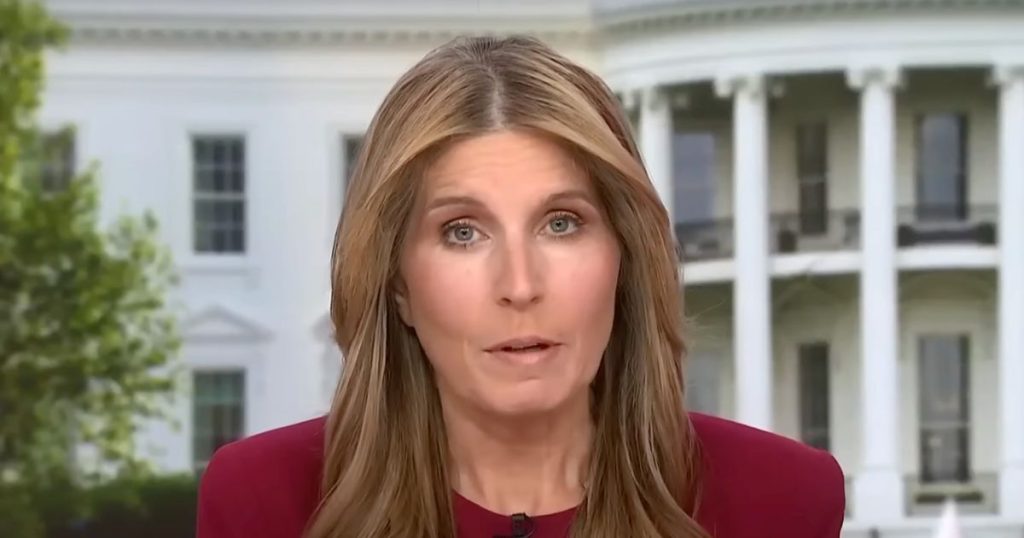On Tuesday, MSNBC’s Nicolle Wallace aired Donald Trump’s 39-minute musical episode at a town hall in Pennsylvania, expressing concerns about his stability and ability to handle unplanned situations. The former president had been taking questions at the event before deciding to end the format due to disruptions and instead dancing to music onstage for nearly 40 minutes. Wallace highlighted the unusual nature of the event, emphasizing the oddness of a presidential candidate cutting off an event to play his campaign soundtrack while swaying and dancing.
Throughout the broadcast, a timer counted up the length of Trump’s dance party as Wallace interviewed guests and commented on the event. The footage raised further concerns about Trump’s cognitive state as the election approaches. His speeches have been characterized by meandering interludes, disjointed jumps between subjects, slurred words, and incoherent or irrelevant answers to questions. Trump has not released a detailed medical history, unlike Vice President Kamala Harris, who shared hers on Saturday and urged Trump to do the same, prompting angry reactions from the former president.
Wallace’s decision to show Trump’s entire 39-minute dance party to viewers was meant to highlight the unusual and concerning nature of the event. She emphasized the awkwardness of a presidential candidate choosing to dance onstage for such a long period rather than addressing questions from the audience. The video footage combined with Wallace’s commentary served to underscore the potential issues with Trump’s ability to handle unexpected situations and the importance of considering a candidate’s mental and physical health when deciding who to vote for.
As Trump’s behavior continues to raise questions about his cognitive state, concerns about his fitness for office have grown. His refusal to release a detailed medical history, in contrast to Harris’s transparency, has only added to the speculation surrounding his health. The comparison between the two candidates’ approaches to disclosing their medical information has become a point of contention, with Trump lashing out at Harris in response to her calls for transparency.
Overall, Wallace’s airing of Trump’s dance party at the town hall event shed light on the former president’s behavior and raised important questions about his fitness for office. The extended dance performance, coupled with Wallace’s commentary and the ongoing debate about candidates’ medical histories, has prompted discussions about the importance of assessing a candidate’s mental and physical health when considering voting choices. With the election drawing closer, the focus on Trump’s cognitive state and transparency about his medical history is likely to continue to be a significant issue in the campaign.


